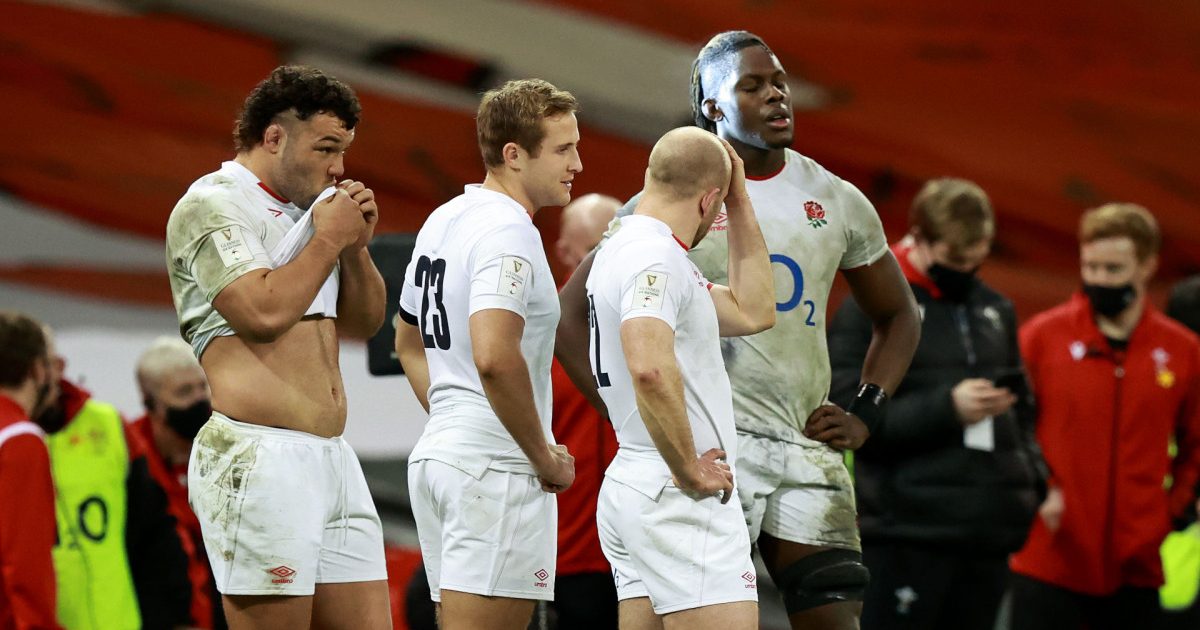England have taken the drastic action of having referees at training to help curb their Six Nations penalties problem

England have taken drastic action after becoming the joint-most undisciplined team of the 2021 Guinness Six Nations, calling referees Wayne Barnes and Matthew Carley into their bubble at The Lensbury in an attempt to fix the penalties problem that was one of their most wounding February failings.
Eddie Jones’ side have had their title defence ruined by defeats to Scotland and Wales either side of an unconvincing win over bottom side Italy. Amid the debris of those Six Nations setbacks is the figure of 41 penalties conceded by England, a momentum-killing number only matched by the hapless Italians.
Table-toppers Wales have conceded 33 penalties in three games, the unbeaten French 18 in two games, Ireland 26 in three games and Scotland 17 in two outings.
Coming into round four off the back of a damaging 14-9 penalty count in the loss to the Welsh, England defence coach John Mitchell has revealed they have been trying to eradicate their disciplinary shortcoming by having two of the Six Nations’ current Test match officials visit them for some in-camp tuition.
Barnes and Carley were both on the whistle in week one of this year’s championship, respectively taking charge of the Wales-Ireland and Italy-France games in Cardiff and Rome. Now they are doling out advice to Jones and co following a Six Nations afternoon at the Principality where the reputation of Maro Itoje was especially hammered by his individual concession of five England penalties.
"We have got a huge amount to play for" ??#SixNations #ENGvFRAhttps://t.co/VZvb0aszWS
— RugbyPass (@RugbyPass) March 9, 2021
“We have had Wayne Barnes and Matt Carley in,” said Mitchell as preparations ramp-up ahead of next Saturday’s Le Crunch with France at Twickenham. “Wayne was in yesterday [Monday] and Matt was in the day before [Sunday] and he is back in today.
“You have got to be really careful that you don’t create artificial situations that are meaningless so what is important is the referee just referees what he sees and I guess we need awareness about why he made that decision and basically who and what, so that is the starting point of the awareness and the education.
“In performance sometimes you get some referees who do not even communicate what it is for, they can be very vacant, and then you have got your leaders who have got to understand that as well, where we need to clean up or why have you been making those decisions. It creates a really good opportunity to grow your awareness around referee decisions.
“We will not stop playing on the edge but we will be more clever about it. It’s important to address the problem as quickly as we can,” continued Mitchell, switching to how Itoje has coped with coming in for recrimination for his play in Cardiff.
“He cares. He has acknowledged that (problem). He has spoken with Eddie about it and has greater awareness around it. We have had referees in this week so there is greater education around that area.
“But at the end of the day he is colossal, he is one of the most destructive footballers in the world and we want him to continue to be that and it is about learning quickly and making sure that you are clear in what you need to do based on the situation in the match.”
"Looking forward to taking away what he has"
– England are primed for the France dangerman#SixNations #ENGvFRA https://t.co/i3BssvDeTo
— RugbyPass (@RugbyPass) March 9, 2021
















